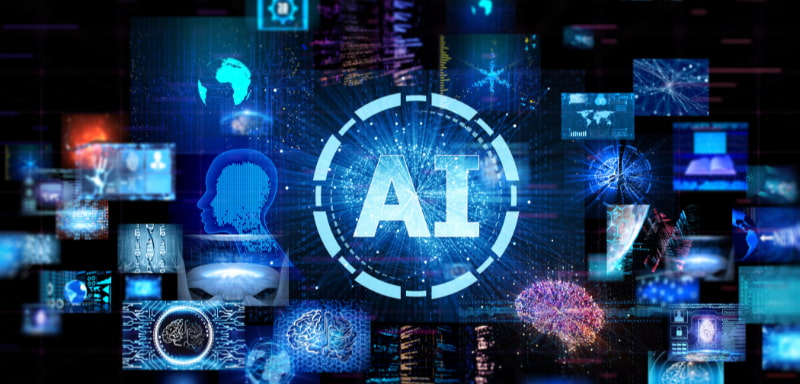Employment Tips
Human Skills AI Cannot Replace: Essential Abilities for the Future
While AI handles data and automation, human skills like emotional intelligence, innovation, and leadership remain critical.
Advertisement
Human Advantage in the AI Era: Skills That Stay Relevant

As artificial intelligence grows smarter and takes on more tasks, many wonder which skills will keep humans valuable and relevant. While AI can handle data and routine jobs, there are still key human skills that machines cannot replace, like creativity, emotional understanding, and complex judgment. These skills rely on personal insight and experience, which technology cannot fully mimic or replicate.
Your ability to connect with others, lead with empathy, and think strategically gives you an edge in a world where AI supports but does not replace human roles. Navigating uncertainty, making ethical decisions, and adapting quickly are essential strengths that AI cannot master. Understanding and developing these uniquely human talents will help you thrive as the workplace continues to change.
Key Takeways
- Your creativity and emotional intelligence set you apart from AI.
- Leadership and trust-building require genuine human connection.
- Adapting and making ethical decisions are skills AI cannot match.
You will be redirected to another website
You’ll receive messages for less than 1 week, with a maximum of 1 message per day. You can unsubscribe anytime by replying STOP. By submitting this form, I confirm that I am 18+ years old and agree to the Privacy Policy and Terms and Conditions. I also provide my signature, giving express consent to receive informational messages via automated emails, SMS, MMS text messages, and other forms of communication. Message frequency may vary as part of our good-faith effort to respond to your inquiry. Message and data rates may apply. Text STOP to cancel. I understand that my consent to receive communications is not a condition of purchase and that I may revoke my consent at any time.
Core Human Skills AI Cannot Replace
You rely on several key abilities that AI cannot match. These include understanding and managing emotions, generating truly original ideas, and making complex decisions based on experience and values. These skills shape how you connect, create, and decide in ways machines can’t duplicate.
Emotional Intelligence and Empathy
Emotional intelligence (EQ) lets you recognize and manage your feelings and understand others’. This skill is vital for building trust and forming strong personal and professional relationships.
AI can analyze data and predict reactions but cannot truly feel or understand emotions. Empathy—the ability to share and respond to others’ feelings—is unique to humans. It helps you navigate complex social situations, resolve conflicts, and motivate teams. Your ability to read subtle cues like tone, body language, and context creates deeper connections than AI’s programmed responses ever could.
Human Creativity and Innovation
Creativity means producing original ideas or solutions, and innovation is turning those ideas into something new and useful. AI can remix existing information but cannot invent entirely new concepts.
Your creativity is shaped by personal experiences, emotions, and imagination. It allows you to think beyond patterns and explore bold, unconventional paths. AI-generated work often lacks the unpredictable spark that comes from human curiosity and intuition. To innovate, you must connect diverse ideas and take risks—qualities that no algorithm can replicate authentically.
Critical Thinking and Judgment
Critical thinking involves analyzing information carefully, questioning assumptions, and making reasoned decisions. Human judgment goes further by weighing ethics, values, and long-term consequences.
AI can process facts quickly but lacks the wisdom gained through life experience. Your judgment accounts for ambiguity, moral dilemmas, and context, which machines can’t fully understand. You decide when exceptions apply, prioritize what matters most, and adapt to new situations. These uniquely human skills keep your thinking flexible and responsible amid complexity.
Interpersonal and Leadership Strengths
You rely on human skills that AI can’t replicate, such as understanding emotions, building trust, and guiding teams. These strengths help you connect with others, solve problems together, and inspire action in ways machines cannot match.
Collaboration and Teamwork
Working well with others requires more than just sharing tasks. You need to read social cues, adjust to different personalities, and solve conflicts. AI can assist by organizing data, but it can’t replace the empathy and flexibility required in real teamwork.
You bring relational understanding that helps create trust and respect among team members. This fosters openness, where ideas flow freely and challenges get addressed effectively. Your ability to adapt your style for the group’s needs is key for productive collaboration.
Active Listening and Communication
Active listening means fully focusing on what others say and responding thoughtfully. It is a skill that builds strong interpersonal connections and helps avoid misunderstandings.
When you listen carefully, you pick up on emotions and unspoken concerns. This makes your responses more relevant and supportive. Clear communication also involves adjusting how you express ideas depending on your audience’s feelings and knowledge. AI cannot grasp these human subtleties or offer genuine feedback.
Leadership and Influence
Leadership is grounded in emotional intelligence—you understand people’s motivations, fears, and goals. This lets you inspire trust and motivate others toward common goals. AI can analyze data or suggest decisions, but it cannot replace your ability to connect personally and lead with authenticity.
You develop relationships that encourage growth, creativity, and resilience. Your influence shapes culture and helps teams navigate change wisely. Leadership is not just about managing tasks; it is about guiding people with empathy, encouragement, and wisdom.
Adaptability, Ethics, and Complex Decision-Making
You must be able to adjust quickly to new situations, make ethical choices, and think strategically to handle problems AI cannot solve alone. These skills involve more than following rules or patterns; they need judgment, values, and insight that come from experience and human awareness.
Adaptability and Resilience
You face changes every day, especially with AI evolving fast. Adaptability means you can learn new skills and adjust to shifting conditions without losing focus. Resilience helps you recover from setbacks and keep moving forward.
AI can automate tasks but struggles with unexpected situations or shifting goals. Your ability to adapt allows you to fill those gaps. This flexibility makes you valuable because you can handle complexity beyond algorithmic predictions.
Key traits you need:
- Willingness to learn new tools and methods
- Staying calm under pressure
- Quickly changing your approach based on new information
Being adaptable means you don’t just survive changes—you use them to grow your talents and stay relevant in your job.
Ethical Judgment and Moral Reasoning
Ethics require more than rules—you need to apply moral thinking to complex situations. AI cannot fully understand why some choices are right or wrong because it lacks conscience and empathy.
You bring human values into decision-making. For example, protecting data privacy or ensuring fairness requires ethical judgment only people can make responsibly. Sometimes, AI outputs reflect biases or incomplete information, so your oversight is crucial.
What ethical judgment includes:
- Balancing different interests and outcomes
- Considering the impact of decisions on people and society
- Using ethical frameworks to guide behavior
Your moral reasoning helps prevent harm and builds trust, which AI alone cannot achieve.
Strategic Thinking and Decision-Making
Strategic thinking means looking beyond immediate tasks to understand long-term goals and risks. Decision-making in this context involves weighing options where AI might suggest data-driven solutions but cannot foresee all consequences.
You need to interpret complex data and use your experience to plan actions that align with larger visions. While AI can analyze trends, it lacks the intuition for human goals and values that shape strategic choices.
In practice, this means you:
- Anticipate future challenges and opportunities
- Prioritize actions based on both facts and context
- Lead or collaborate on decisions that require judgment beyond algorithms
Your leadership in these areas ensures that decisions are thoughtful, ethical, and effective.
The Human Advantage in Evolving Workplaces
You face a workplace shaped by automation and AI, where human skills remain essential. Understanding how your abilities fit into the changing job market and how AI can support rather than replace you is key. Industries like healthcare and customer service show clear examples of where your uniquely human talents matter most.
Human Skills in the Job Market
As AI handles routine tasks, your creative problem-solving and emotional intelligence become more important. Skills like storytelling, persuasion, and negotiation help you communicate and connect in ways machines cannot. Employers still value qualities such as self-awareness and self-regulation because they drive teamwork, motivation, and leadership.
You can improve your future job prospects by focusing on innovative thinking and scenario planning. These skills prepare you to adapt and brainstorm new solutions. The demand for these abilities continues to grow alongside AI, making your human advantage a critical factor in your career.
AI Augmentation Versus Replacement
AI, like ChatGPT, is a tool meant to assist you, not take your place. It excels at processing data and performing repetitive tasks. Your role shifts to guiding AI and making decisions based on information that requires judgment and creativity.
Think of AI as a partner that frees you to focus on complex challenges, like conflict resolution or motivating a team. By combining your human skills with AI’s capabilities, you create a more resilient and productive work environment, rather than being replaced by technology.
Industry Examples: Healthcare, Customer Service, and Beyond
In healthcare, AI supports diagnosis and data analysis, but empathy and patient communication are skills only you can provide. Your ability to listen and respond sensitively is vital for quality care.
Customer service also relies heavily on your human touch. Machines can handle basic inquiries, but you resolve conflicts and persuade customers effectively through emotional intelligence and storytelling.
Other fields, such as creative industries and management, depend on your innovative thinking and brainstorming. Your human advantage lies in the ability to motivate, negotiate, and plan for uncertain futures where AI cannot replicate the full depth of your mind.
Trending Topics

Entry Level Warehouse Jobs: Tips and Insights for Success
Start your warehouse career today! This guide explains entry-level roles, CV tips, and local job search tools for South Africans.
Keep Reading
The Future of Hiring: AI Recruitment Trends You Need to Know
Learn how artificial intelligence reshapes hiring by automating tasks and driving data-driven recruitment decisions.
Keep Reading
DHL Jobs South Africa: Start Earning from ZAR 12K a Month
Looking for stable work without a degree? DHL offers entry-level jobs in South Africa with salaries above ZAR 14,000. Learn how to apply.
Keep ReadingYou may also like

How to Find Jobs Near Me Without a Degree: Jobs You Can Get Right Now
Looking for jobs near you without a degree? Learn how to find entry-level work in South Africa using local job boards, networking, and more.
Keep Reading
Starbucks Jobs: Career growth, Benefits + up to $24/h
See how Starbucks shapes responsibilities, team dynamics and growth possibilities through structured training and stable routines.
Keep Reading
How to Earn Up to R5,000/Week with Uber Eats in South Africa
No degree needed, no fixed hours—just a smart way to make money. Learn how to start delivering with Uber Eats in South Africa.
Keep Reading